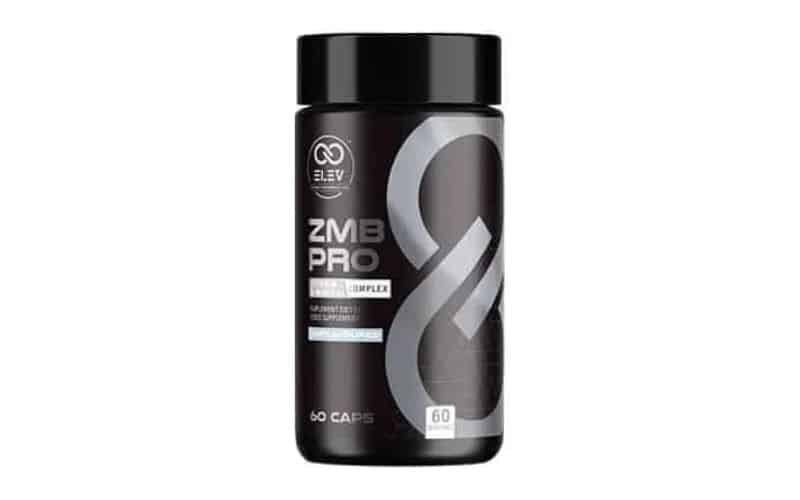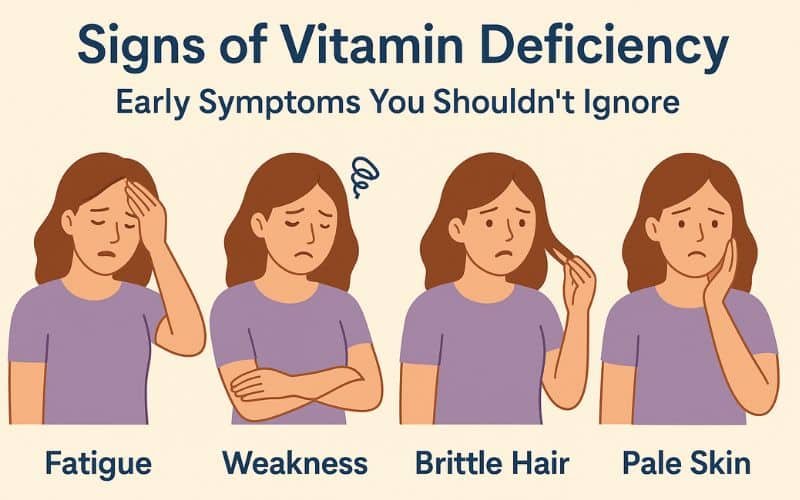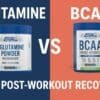No products in the cart.
Return To ShopSigns of Vitamin Deficiency: Early Symptoms You Shouldn’t Ignore
Vitamins are the foundation of good health, fueling everything from energy production to immunity and mental wellbeing. However, with busy lifestyles, processed foods, and limited exposure to natural nutrient sources, vitamin deficiencies are becoming increasingly common. The challenge is that symptoms often appear subtle at first. Recognizing the early signs of vitamin deficiency can help prevent long-term health complications and restore balance with the right nutrition and supplements.
Why Recognizing Vitamin Deficiency Matters
Your body depends on vitamins to function efficiently. They regulate metabolism, strengthen immunity, support growth, and maintain organ health. When deficiencies occur, the body begins to signal distress through symptoms like fatigue, skin issues, and poor immunity. Left unaddressed, these small signs can progress into chronic problems such as osteoporosis, anemia, or cardiovascular issues. This is why prevention with diet and targeted solutions like vitamins & minerals supplements is crucial.

Common Signs of Vitamin Deficiency
Before diving into specific symptoms, it’s important to note that each vitamin serves a unique role in the body. Deficiencies often overlap, so understanding the root cause can guide smarter nutrition and supplementation.
Fatigue & Weakness
Constant tiredness, weakness, or lack of focus may indicate a deficiency in Vitamin B12, Vitamin D, or Iron. These nutrients are vital for energy metabolism and oxygen transport.
Brittle Hair & Nails
Weak or breaking nails, along with excessive hair fall, are commonly linked to Biotin and Iron deficiency. A lack of protein intake may also worsen these symptoms.
Frequent Infections
If you catch colds or infections easily, it might be due to low Vitamin C, Vitamin D, or Zinc levels. These nutrients are critical for strong immunity. Explore more in this detailed guide on Vitamin C Supplement Price in Pakistan.
Poor Bone Health
Joint pain, weak bones, or frequent fractures are often linked to Calcium and Vitamin D deficiencies. Without adequate intake, the body pulls calcium from bones, leading to long-term risks like osteoporosis. You can learn more in the Vitamin D Supplements in Pakistan guide.
Skin Problems
Dry, flaky, or irritated skin can signal a lack of Vitamins A, E, or B-complex. Nutrients like Collagen and Omega-3 also play a big role in skin repair and hydration. Check out the Best Vitamin Supplements blog for additional insights.
Mood Swings & Anxiety
Low levels of Vitamin D, B6, and B12 are associated with poor mood regulation and depression-like symptoms. Deficiencies in these vitamins can affect neurotransmitter production, directly impacting mental health.
Who Is at Risk of Vitamin Deficiency?

Vitamin deficiency can affect anyone, but certain groups are at higher risk. Busy professionals relying on fast food, athletes with high nutrient demands, women with specific hormonal needs, vegetarians/vegans, and elderly individuals are particularly vulnerable.
Lifestyle factors such as limited sun exposure, stress, and restrictive diets further increase the risk. To counter this, consider incorporating targeted products from Health & Wellness categories into your daily routine.
How to Prevent & Correct Vitamin Deficiency
While whole foods remain the best source of vitamins, supplements can bridge gaps when diets fall short.
- Vitamin C: Boosts immunity and skin repair.
- Vitamin D: Supports bone strength and mood regulation.
- Omega-3: Reduces inflammation and supports brain health.
- Multivitamins: Provide an all-in-one solution for general deficiencies.
Explore reliable solutions at Vitamins & Minerals and read about fun options like Vitamin Gummies Benefits & Safety for daily use.
FAQs on Vitamin Deficiency
Q1: What are the first warning signs of vitamin deficiency?
Fatigue, brittle nails, frequent infections, and skin issues are among the earliest indicators.
Q2: Can supplements completely replace food?
No, supplements should complement a balanced diet, not replace it.
Q3: How long does it take to correct a deficiency?
Depending on severity, improvements may appear within weeks to months with consistent supplementation and dietary changes.
Q4: Are vitamin deficiencies reversible?
Yes, most are reversible with proper nutrition, lifestyle adjustments, and supplements.
Conclusion
Spotting the signs of vitamin deficiency early allows you to take control of your health before issues worsen. Whether it’s fatigue, poor skin health, or frequent infections, your body is signaling the need for better nutrition. Combining a balanced diet with high-quality supplements is the best way to prevent and correct deficiencies.
Spot the Signs of Vitamin Deficiency – don’t ignore early symptoms, take action today for a healthier tomorrow!









Add comment